Whether you own a restaurant, cafe, bar, or any other type of commercial establishment, your refrigeration unit is one of the most important components of your business’ daily operations. After all, it’s your refrigerators and or freezers that allow you to store foods and other products, keeping them safe for later use, which, in turn, allows you and your business to turn a profit.
With that said, when your refrigeration units stop working properly, not only can it mean a waste of food/product, but it can also prevent you from making money!
Common Commercial Refrigerator Issues
This is precisely why you should take the time to learn a few simple troubleshooting steps, which might be able to get your unit back up and running again!
If not, rest assured that we’re always available for quick and efficient diagnosis and repair of both commercial and residential refrigeration units.
Refrigerator Is Leaking
Unfortunately, there are a few different reasons for a leaking refrigerator, which might be a bit tricky to repair. But on the bright side, locating and diagnosing the source of your leak isn’t nearly as complicated.
Let’s take a look at the most common parts/components to check.
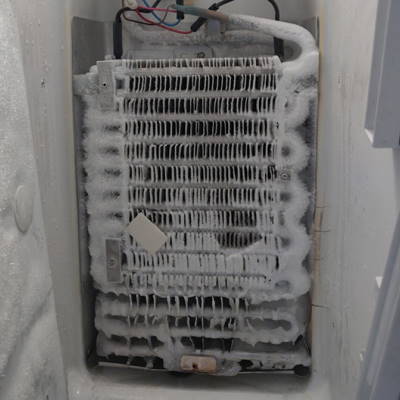
Clogged Or Freezing Defrost Drain
In some cases, if your unit’s defrost drain may be located near your coolant lines, ice may have begun forming inside, which may have blocked the drain. In this case, water will be caused to backup and leak elsewhere inside your unit.
If you notice that your defrost drain is clogged or blocked with ice, you can try using a hairdryer or heat gun to heat the line and remove the blockage. Just make sure that you don’t apply too much heat and melt your water line by accident.
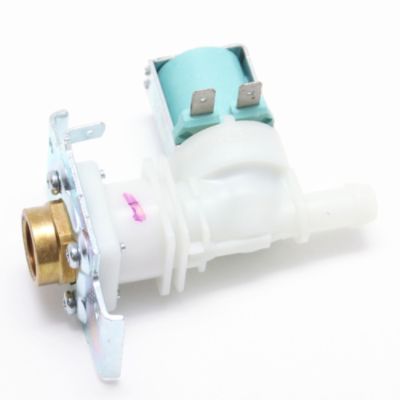
Malfunctioning Water Inlet Valve
Many commercial refrigeration units have water inlet valves, which can often wear out over time and begin to malfunction. So before you pick up the phone, make sure to inspect any water lines your unit might have to see if any of the connections or valves have any visible signs of damage. If you’re able to locate the leak’s source, it might be possible to tighten the connection. Alternatively, you may need to replace the valve entirely.
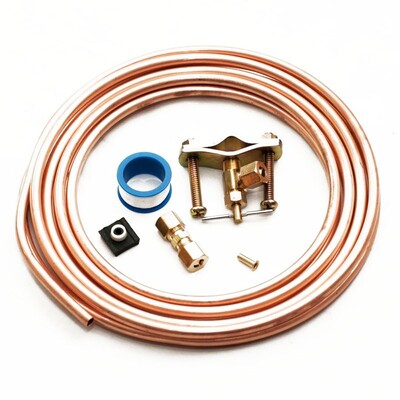
Broken Water Filter
If your unit has a water filter, this could also be the source of your leak. Again, do your best to inspect any water lines or connections surrounding the water filter.
Refrigerator Not Cooling
When a fridge isn’t cooling down properly, not only is it inconvenient, but it can also contribute to the growth of mould, mildew, and bacteria inside your unit. In turn, this can cause smells and odours, and it can even cause your food to go bad sooner than it should. Although inconvenient, this is usually caused by dirty, gummed-up condenser coils or a broken or faulty fan motor somewhere inside your unit.
Condenser Coils are Dirty
Start by pulling your unit and inspecting its condenser coils, which will either be located at the back of the unit or underneath. When these coils get covered in dust, debris, and pet dander, it will prevent your unit from properly disperse heat. So before you call us, make sure to check your condenser coils, and try cleaning them with a vacuum and a wet rag.
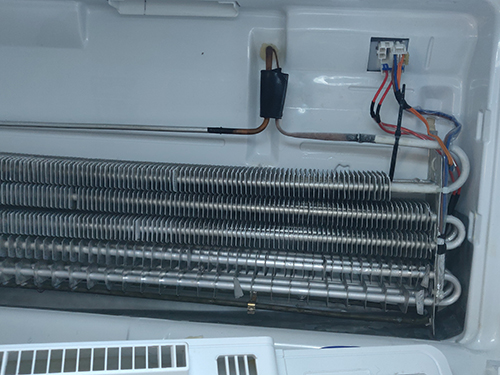
Broken Condenser Or Evaporator Fan Motor
Any refrigeration unit will have both a condenser and evaporator fan, which are essential for circulating cool air inside your unit and dispersing heat on the outside. Therefore, if you’re able to notice that either of these two broken or malfunctioning fans, this is likely the reason your unit isn’t cooling properly.
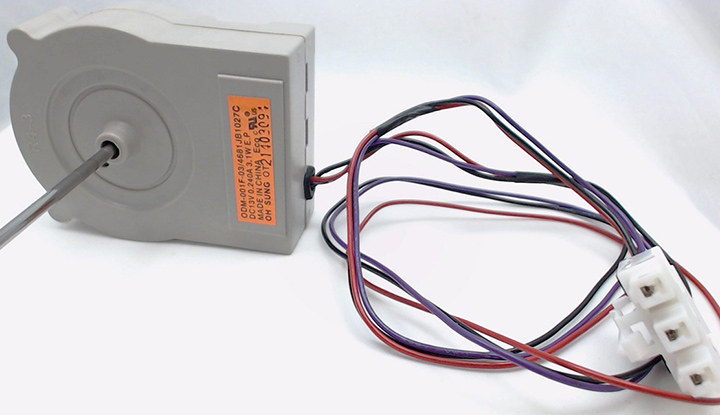
Refrigerator Is Too Noisy
Before you check any internal components, it’s important to make sure that your refrigeration unit is, in fact, properly levelled. If not, it may cause an internal component to touch when hey shouldn’t, resulting in a fridge that is too noisy. After you’ve levelled your unit, you may then proceed to check the following components. However, it’s also important to make sure that your unit is unplugged before removing or inspecting any internal parts.
Faulty Fan Blades
Over time, your refrigeration unit’s fans may get dirty and gummed up with dust and dirt. In turn, this could cause them to work harder than they have to, or it might even result in any unusual ticking noises. Therefore, it’s a good idea to visually check any fans your unit may have to ensure that the blades can rotate freely without any resistance. After unplugging your unit, you can check this by trying to spin the fan blades manually. If you feel resistance and nothing is obstructing the blades from turning, your problem is likely inside the fan motor itself.
Broken Condenser Or Evaporator Fan Motor
Similar to why your unit may not be cooling properly, if you’re noticing any strange or unusual noises coming from your unit, this may be caused by your condenser or evaporator fans. While this may be caused by an object stuck in the fan blades, the issue might also be inside the motor itself. In fact, it’s not uncommon for ball bearing or the motors’ gears to wear out and break over time. If this is the source of your unusual noise, the entire fan and motor assembly will likely need to be replaced.
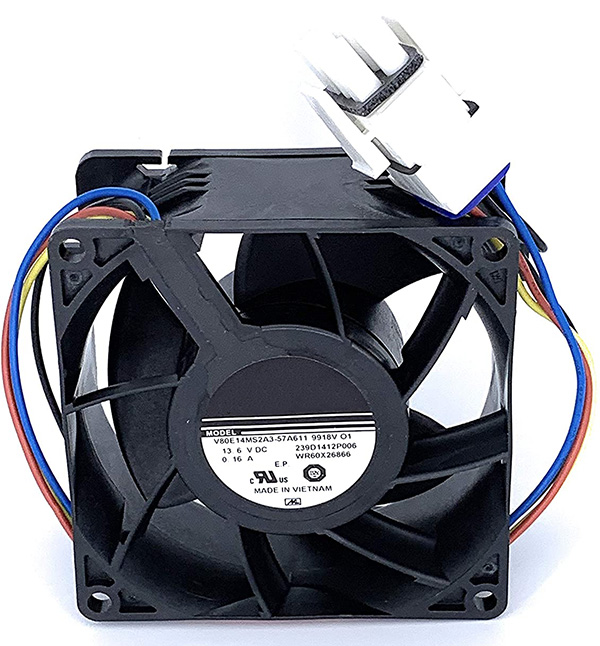
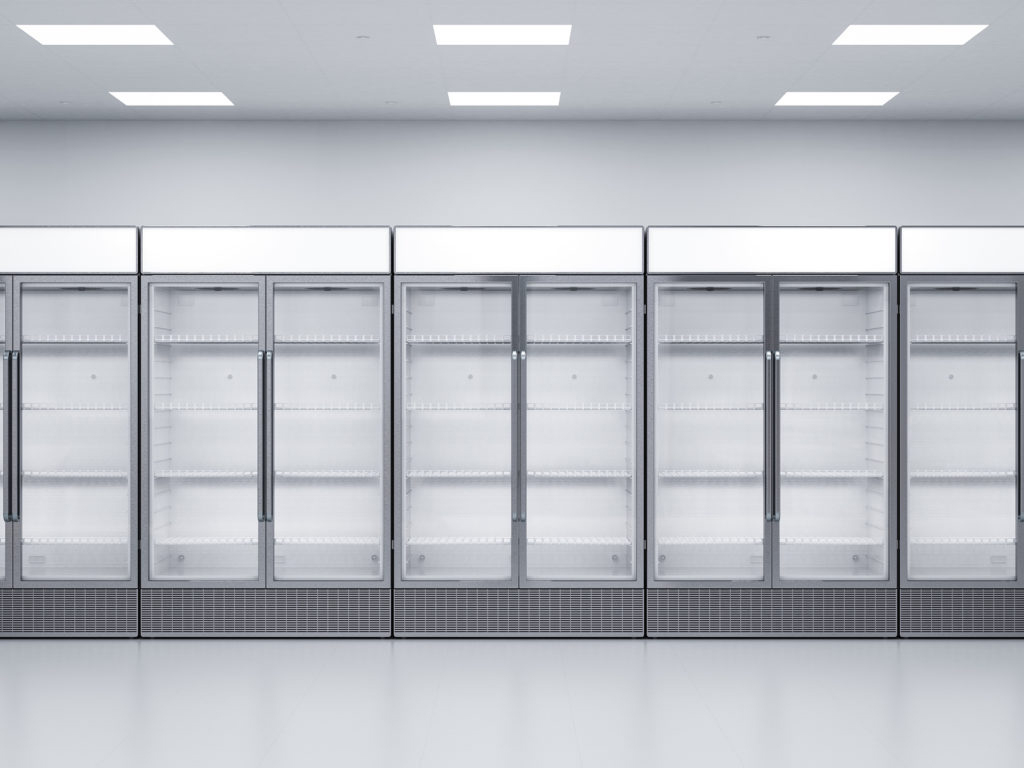
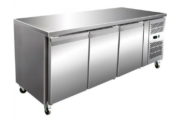
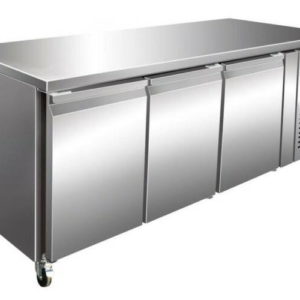
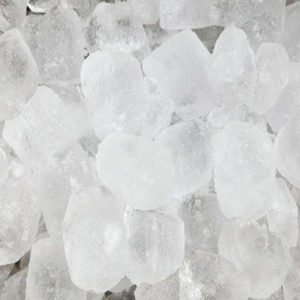
Leave a Reply